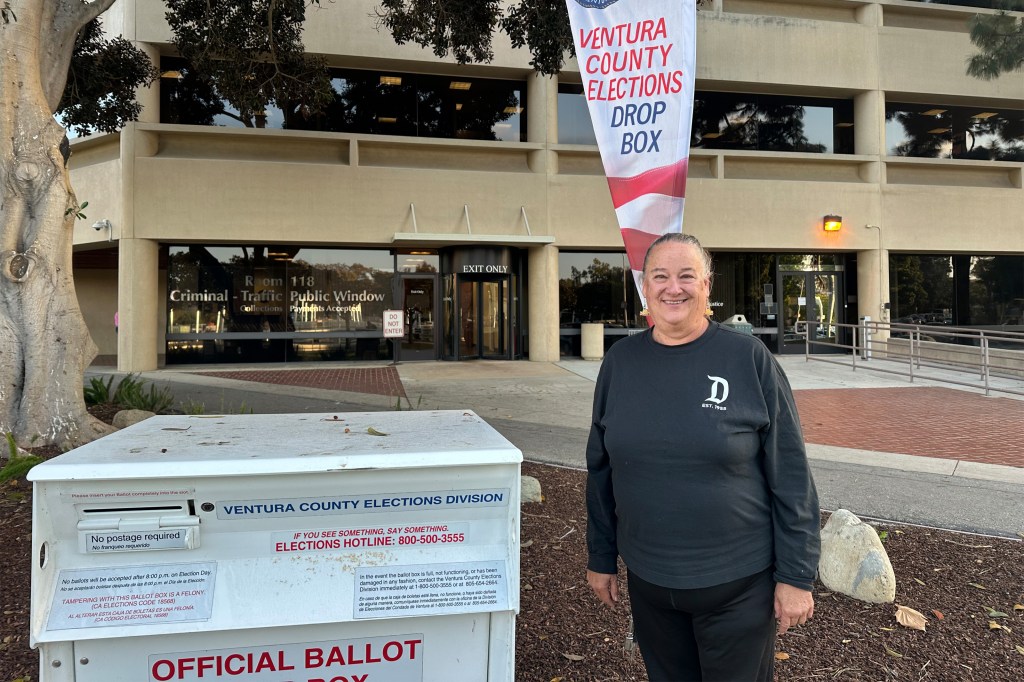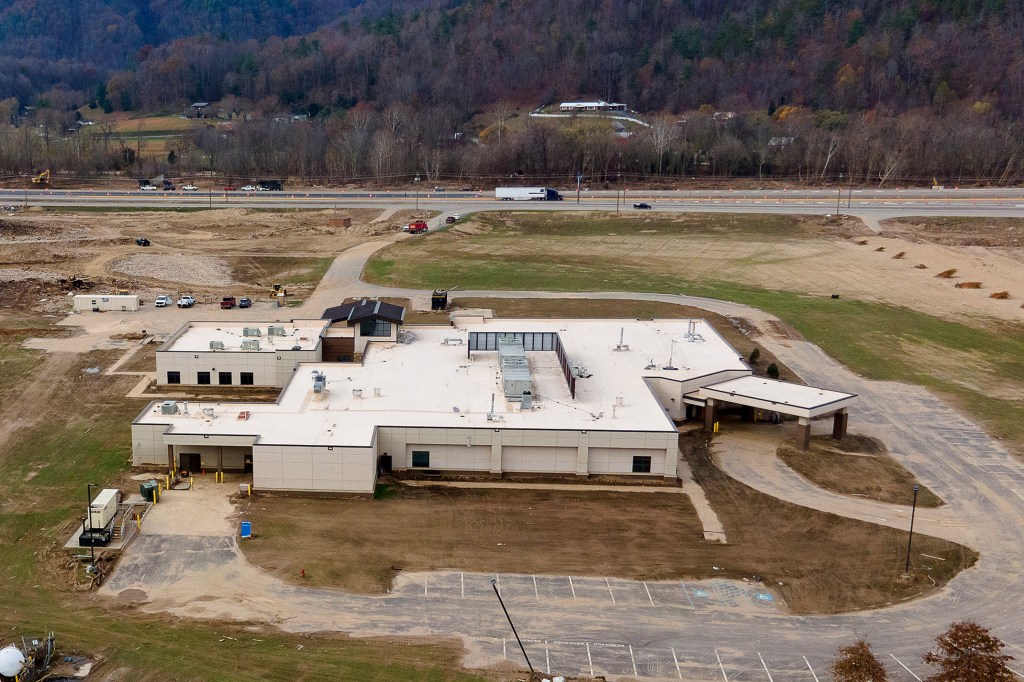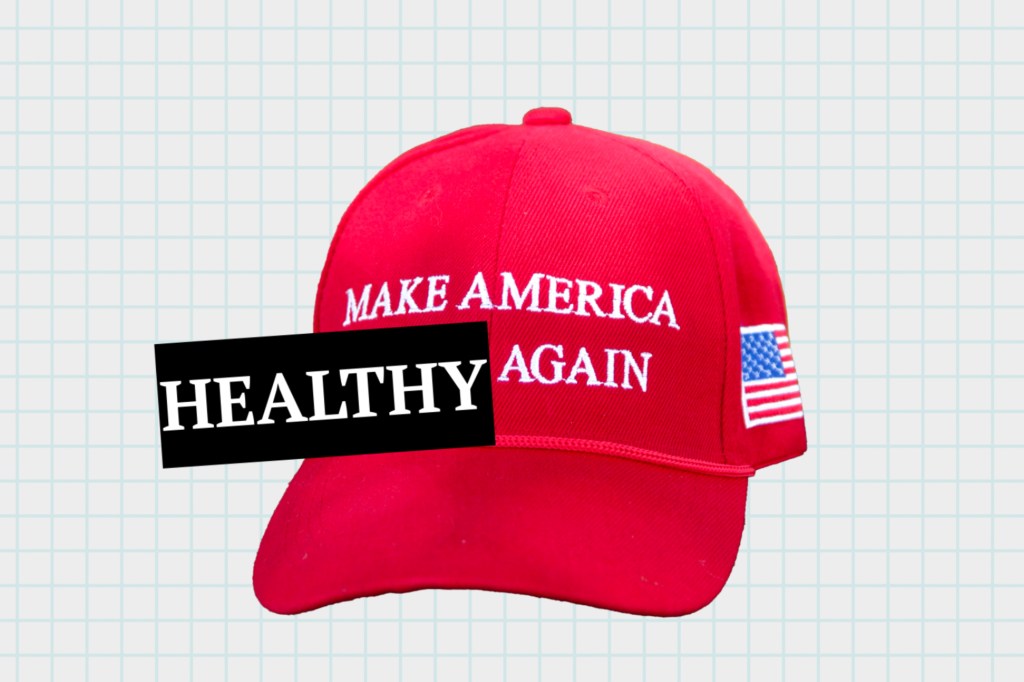RIVERSIDE, Calif. — California’s gubernatorial election is a year away, and the field of primary candidates is still taking shape. But one persistent issue has already emerged as a leading concern: the cost of health care.
At a forum Nov. 7 in the Inland Empire, four Democratic candidates vying to succeed Gov. Gavin Newsom vowed to push back against Republican cuts to health care programs and to improve people’s access to medical care, including mental health services. But while some floated taxes, candidates were light on details about how they would bring down health care costs.
Former U.S. Health and Human Services Secretary Xavier Becerra promised to be California’s next “health care governor,” echoing Newsom’s commitment to lower costs and broaden access when he first got into office. State Superintendent of Public Instruction Tony Thurmond pledged to create a single-payer health care system in which everyone is pooled into one program. Former state Controller Betty Yee said she would “build back better” from federal cuts and create a health care system tailored to California’s diverse communities.
And former Los Angeles Mayor Antonio Villaraigosa vowed to fight to preserve safety net health care pared by the Trump administration and Republicans in Congress, although he acknowledged the challenge given limited state resources.
“I’m not gonna sell you snake oil,” he said. “It is going to be tough to provide that care, but I’m absolutely committed to it.”
The candidates’ assurances come amid recent shifts in state and federal policies that, together with a variety of forces, are driving up the cost of health care and making it harder for people to obtain and maintain coverage. In addition to providers raising prices, other inflationary pressures include an aging population, rising chronic conditions, medical advancements, and new technologies, according to analysts. That’s added to a sense of financial precarity for the millions of Californians struggling with the state’s high cost of living and recent inflation spike.
Although the forum was open to up to six candidates, former U.S. Rep. Katie Porter and entrepreneur Stephen Cloobeck declined to participate, citing scheduling or other factors, according to Jon Koriel, an event spokesperson.
Health Care Top Concern
A statewide poll commissioned by the California Wellness Foundation ahead of the Health Matters forum found that nearly 80% of likely voters worry about the cost of health care and that 72% think the next governor should prioritize capping out-of-pocket expenses. Access to affordable mental health care and being able to care for aging family members or friends were also top concerns. Perhaps in an early signal, voters last week in Santa Clara County passed a sales tax to help backfill federal cuts to food and health care safety net programs.
California mirrors much of the nation. Exit polls from the Nov. 4 election show 81% of those who voted for Democrat Abigail Spanberger, winner of the Virginia governor’s race, cited health care as the most important issue facing the state. In a national Reuters/Ipsos poll, health care was cited as the top everyday expense Americans want Congress to prioritize. And 65% of voters said an annual health cost increase of $1,000 would have some impact on their 2026 vote, according to a recent KFF poll.
Some Californians interviewed on Nov. 4, the day of the state’s special election, expressed disappointment in Newsom’s unmet promises on health care. Newsom, a Democrat who is mulling a presidential run as he wraps up his second term in January 2027, had campaigned on single-payer health care.
During his tenure he’s steered billions of dollars and engineered rules to help the neediest Californians afford and access health care. The state also expanded state-funded Medicaid coverage, known as Medi-Cal, to all eligible residents in the country without legal status. Medicaid provides free or low-cost health insurance to low-income and disabled people.
But this year, facing rising costs and budget deficits, Newsom and the Democratic-controlled legislature walked back some of that expansion by freezing enrollment for adults without legal status starting in 2026 and implementing premiums. They also resurrected an asset test for older adults and people with disabilities. Meanwhile, health care costs and homelessness remain a huge problem, and many Californians struggle to get basic medical care. And there’s no sign of a single-payer health care system, which Sacramento lawmakers have repeatedly failed to advance amid concerns about cost, including one estimate in 2017 of $400 billion annually.
“I remember him coming and speaking to our members and telling them that he was going to fight with them for single payer,” Michael Cusack, a 30-year-old former health care union worker from Oakland, said as he cast his ballot last week. “And I never saw him deliver on that campaign.”
Paying for Health Care
Becerra, Thurmond, and Yee said they would be open to raising taxes to pay for health care programs. Villaraigosa sidestepped the tax question, saying his focus would be to “grow the pie” economically. Yee also suggested offering tax credits to help struggling families pay for health care and caregiving expenses.
During the forum’s lightning round, Becerra, Thurmond, and Yee also raised their hands when asked whether they supported single-payer care. Becerra said after the event that he doesn’t believe the state would receive support from the Trump administration for a single-payer system, but he said he would push for universal access to health care.
Indeed, all the candidates appeared mindful of Washington’s power over health care resources, even as they vowed to stand up to President Donald Trump, who has an especially adversarial relationship with Newsom.
“Let’s recognize that the federal government is our largest partner,” Becerra said. “We must work with them. We will not take a knee, but we must work with them.”
Currently, the biggest threats to health care costs and accessibility come from the federal government. Republicans in Congress have refused to give in to Democrats’ demand to extend premium tax subsidies for health insurance plans purchased on Affordable Care Act exchanges, the main issue that drove the government shutdown. Enrollees in Covered California, the state’s health insurance exchange, have received notices that their premiums will increase next year. On average, premiums for ACA plans are expected to double across the nation.
Laura Jones, a small-business owner in Oakland, currently pays the minimum possible for her Covered California plan, but she worries she wouldn’t be able to afford a major medical emergency. She thinks about one of her friends who recently suffered a stroke.
“The hospital bills were just so egregious,” Jones said. “How would I pay for that?”
Meanwhile, an impending $900 billion in federal Medicaid spending reductions under the One Big Beautiful Bill Act and tighter eligibility restrictions are expected to push as many as 3.4 million Californians out of the program. More than a third of Californians are currently enrolled in Medi-Cal.
Oseoba Airewele, 29, of Ventura, a registered Democrat who previously worked as a software engineer, said Medi-Cal became a lifeline after he lost insurance through his job and needed mental health and dental care.
“If I were to lose it, I would be very concerned,” he said. “I’d be in a bad place.”
People with employer-based health coverage also face steep price hikes. Family premiums for employer-based plans averaged almost $27,000 this year, up 6% from 2024, a new KFF report shows. Workers typically pay almost $7,000 of that, the report found. That doesn’t include other out-of-pocket expenses.
“Even though I have a job, it’s still really expensive to pay for the copays,” said Rheema Calloway, 35, a San Francisco independent.
Primary in June
Among the other Democratic candidates vying for governor in 2026, Porter has said she will make fighting federal cuts to Medicaid and Medicare a top priority, along with expanding and improving health care for all residents. Porter’s campaign suffered a blow after viral videos surfaced of her threatening to walk out of a CBS interview and berating a staff member. Former Assemblyman Ian Calderon has said he would protect access to Medi-Cal. And Cloobeck wants to fast-track housing construction.
Republican candidates include Riverside County Sheriff Chad Bianco and Steve Hilton, a former Fox News contributor and policy adviser to David Cameron when he was Britain’s prime minister. Both have pledged to tackle affordability issues, especially housing costs.
Two other high-profile Democrats — former Vice President Kamala Harris and U.S. Sen. Alex Padilla — have said they won’t run. Rick Caruso, a Republican-turned-Democrat and wealthy Los Angeles businessman, has yet to decide whether to run.
The California primary will be held June 2 and the general election on Nov. 3.
KFF Health News correspondent Christine Mai-Duc and ethnic media editor Ngoc Nguyen contributed to this report.
KFF Health News is a national newsroom that produces in-depth journalism about health issues and is one of the core operating programs at KFF—an independent source of health policy research, polling, and journalism. Learn more about KFF.
USE OUR CONTENT
This story can be republished for free (details).








